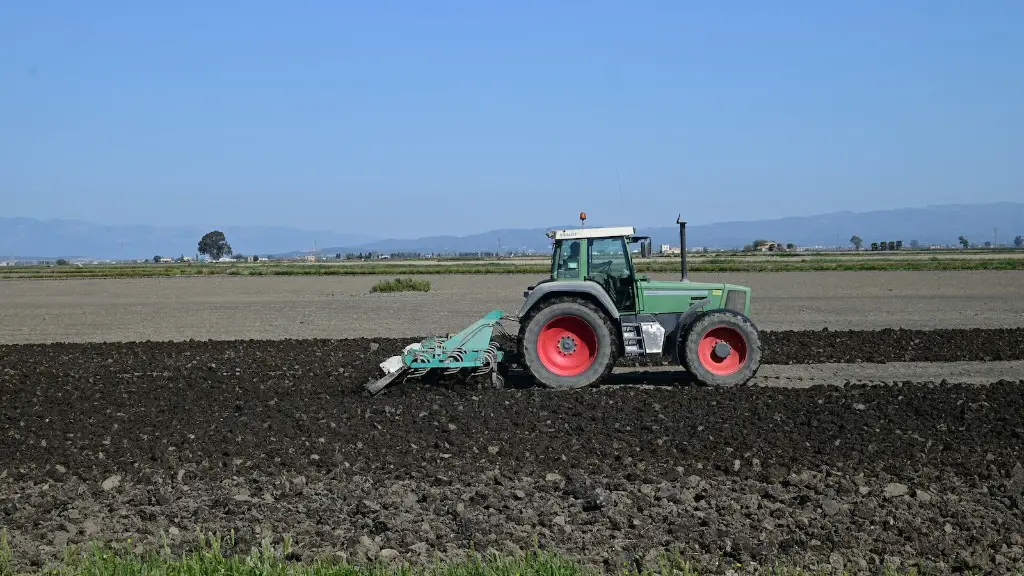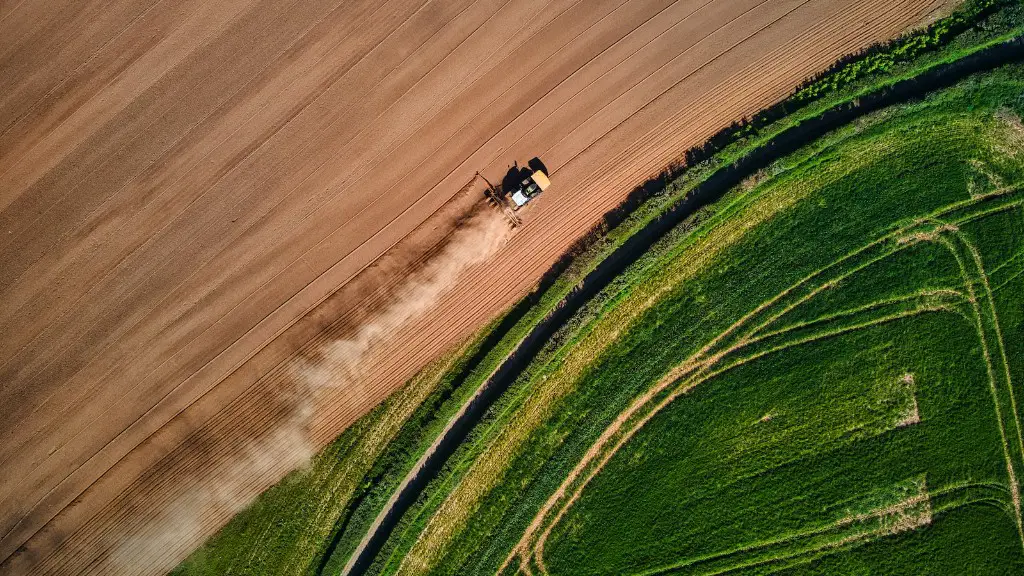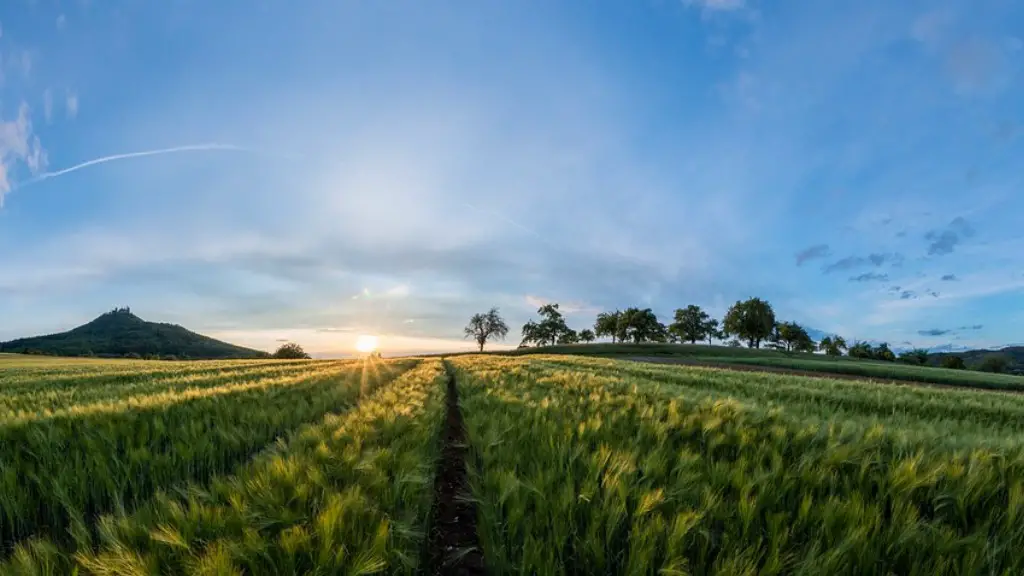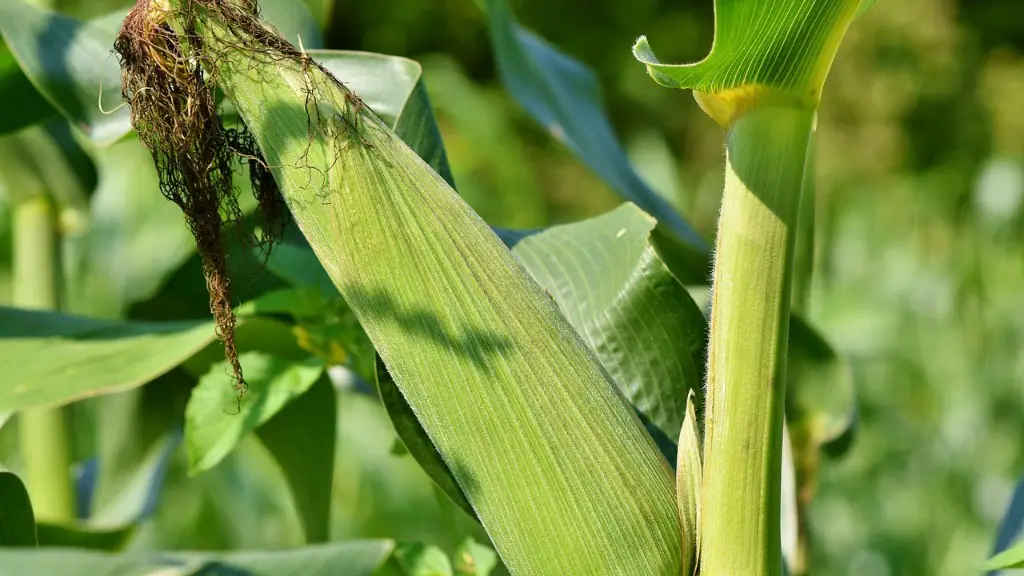Africa is the world’s second largest and most populous continent, after Asia. If we look at the history of agriculture, it is clear that early African civilizations were some of the first to begin practicing it. The most famous example is the Nile River Valley in Egypt, where the first evidence of agriculture appears around 9500 BC. This early form of agriculture allowed for the domestication of animals and the development of complex societies. Other early African civilizations that saw the rise of agriculture include the Nok culture of West Africa and the Sahelian kingdoms of the Sahara.
The early African civilizations that agriculture gave rise to include the Ancient Egyptians, the Nubians, and the Ethiopian civilizations.
How was the development of agriculture important to early African civilization?
It is interesting to note that the late start of agriculture in sub-Saharan Africa may have actually been a blessing for many people. Foragers in this region enjoyed healthier lifestyles and a generally higher standard of living for much longer than the people of the Fertile Crescent or East Asia. This is due to the fact that they were not exposed to the same diseases and pests that plagued early agricultural societies. Additionally, the climate in sub-Saharan Africa is much more conducive to foraging than the drier climates of the Fertile Crescent and East Asia. As a result, the people of this region were able to maintain a higher standard of living for a longer period of time.
The development of agricultural communities represents a significant milestone in human history. For the first time, families and larger groups were able to establish a more settled lifestyle, transitioning from a nomadic hunter-gatherer existence to one that was based on domesticating plants and animals. This allowed for the growth of communities and the development of civilizations.
What was one result of the development of agriculture in early Africa
One result of the development of agriculture in early Africa was that ties and connections between extended families became stronger. This was due to the fact that families had to cooperate in order to survive and thrive.
Before the introduction of agriculture, Africans were constantly on the move, following the herds of animals they depended on for food. Once they learned how to grow their own food, they were able to settle down in one place. This led to the development of larger settlements and eventually to the establishment of cities and civilizations. Agriculture also improved the health of the people, since they no longer had to rely on scavenging for food.
What is the contribution of agriculture in Africa?
Agriculture is a vital part of the African economy, employing millions of people and supporting the livelihoods of even more. The sector accounts for a significant portion of the continent’s GDP, making it a key driver of economic growth. While the sector faces challenges, such as climate change and soil degradation, there are also opportunities to improve productivity and increase incomes. With the right policies and investments, agriculture can continue to play a vital role in the African economy.
When early humans began farming, they were able to produce enough food that they no longer had to migrate to their food source. This meant they could build permanent structures, and develop villages, towns, and eventually even cities. Closely connected to the rise of settled societies was an increase in population.
How did agriculture change the life of early?
Agriculture has brought about many important changes in human life. For one, it has allowed people to settle down in one place instead of being nomadic. This has allowed them to grow their own food, which has been a huge step forward for humanity. Additionally, it has allowed people to develop skills and knowledge in one specific area, which has led to the development of civilizations.
The agricultural revolution had a variety of consequences for humans. It has been linked to everything from societal inequality—a result of humans’ increased dependence on the land and fears of scarcity—to a decline in nutrition and a rise in infectious diseases contracted from domesticated animals.
What are the impacts of agriculture to the society
There is no doubt that agriculture globally is putting an ever-increasing pressure on land and water resources, often leading to land degradation such as soil erosion and salinization, as well as eutrophication. This is in turn causing greenhouse gas emissions, which is having a negative impact on our planet.
The increased production of food led to a regular supply of food, which in turn led to an increase in population. Surplus agricultural production resulted in trade, for example, food was exchanged for pots and tools. The invention of writing, arithmetic and geometry was due to the need to keep records.
What early African civilizations did agriculture give rise to quizlet?
The adoption of settled agriculture as a means of subsistence was an important step in the development of civilizations in Africa. The Egyptians, Axum, and Meroe were among the earliest peoples in Africa to adopt this way of life, and as a result, their civilizations flourished. This underscores the importance of agriculture in the development of human civilization.
The Agricultural Revolution was a period of unprecedented agricultural growth and technological advancement. This period saw a massive increase in agricultural production, which led to a population boom and the development of new agricultural practices. This, in turn, led to a number of other phenomena, such as rural-to-urban migration, the development of a coherent and loosely regulated agricultural market, and the rise of new political and economic systems.
What did early African farmers produce
The crops and livestock of the early African farmers were quite diverse. The first farmers grew two types of crops: sorghum and millet. These grains could be ground into a powder to make porridge or beer. After the Europeans arrived in the 1500s, the early farmers introduced wheat and maize to Africa. In addition to these crops, the early African farmers also raised livestock such as cattle, goats, sheep, and chickens.
Today, the population of sub-Saharan Africa is estimated to be over 1 billion. This population growth is largely due to the introduction of agriculture, which allowed for a more settled lifestyle. With agriculture came the ability to support larger populations, as well as new technologies and trade.
What were the benefits of the agricultural revolution?
The Agricultural Revolution was a time of great experimentation with new crops and new methods of crop rotation. These new methods gave the soil time to replenish nutrients, leading to stronger crops and better agricultural output. Advancements in irrigation and drainage further increased productivity.
Agriculture forms an integral part of the Indian economy, with over 70 per cent of rural households depending on it. It is an important sector, contributing about 17 per cent to the country’s GDP and providing employment to over 60 per cent of the population. India is one of the world’s leading producers of foodgrains and cash crops, and holds a prominent place in the global agricultural trade. The sector also provides livelihoods to a large section of the rural population and is a source of raw materials for the agro-based industries. In recent years, the sector has witnessed significant growth, driven by strong government support and favourable weather conditions. With the government’s continued focus on the development of the agricultural sector, India is well positioned to emerge as a leading player in the global agricultural market.
Warp Up
The early African civilizations of Nubia, Egypt, and Carthage all arose from cultures that heavily relied on agriculture. In all three cases, the fertile soil and ample rainfall of the region allowed for successful farming, which in turn allowed these civilizations to grow and thrive.
There is no single answer to this question as there were many early African civilizations that practiced agriculture. However, some of the most notable examples include the ancient Egyptians, who used irrigation and crop rotation to maximize crop yield, and the Nubians, who relied heavily on techniques like terracing to make the most of their land. Ultimately, agricultural practices vary greatly from civilization to civilization, but they all serve the same purpose: to provide a reliable food source for a population.





